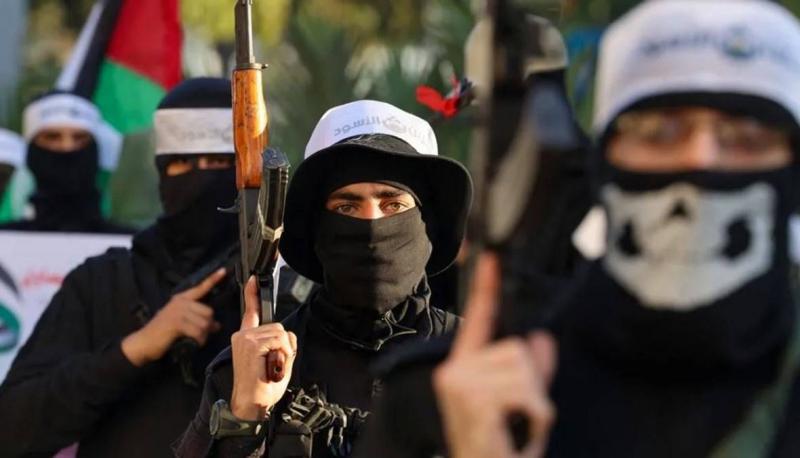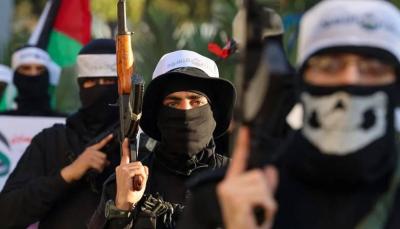The assassination of Ismail Haniya in Iran deprived the Palestinian Islamic Resistance Movement "Hamas" of one of its most astute political leaders, but it will not affect the leadership of the military wing of the movement, which Israel is attempting to eliminate in Gaza. "Hamas" has several potential candidates to succeed Haniya, the most prominent among them being Khaled Mashal, the former leader of the movement who survived an Israeli assassination attempt in Jordan in 1997 and currently resides in Qatar.
Regardless of who emerges, experts say it will not impact how "Hamas" conducts its war against Israel in the Gaza Strip, where leaders including Yahya Sinwar are largely leading operations independently during the conflict. However, for Hamas leaders residing outside Palestinian territories, the assassination in Tehran indicates an increase in the risks surrounding them. Haniya is the second Hamas leader to be killed in a Middle Eastern capital this year, after a drone strike killed the movement's deputy leader Saleh al-Arouri in Beirut in January.
Israel has had mixed results in its attempts to kill leaders based in Gaza responsible for planning and executing the cross-border attack on October 7, which resulted in the deaths of 1,200 people and the kidnapping of 250 others by Hamas-led militants, according to Israeli statistics. In March, Israel announced it had killed Marwan Issa, the deputy military commander of Hamas’s armed wing known as the Izz ad-Din al-Qassam Brigades. The United States confirmed Issa's death in an Israeli operation. However, Hamas did not confirm or deny his killing.
In July, an Israeli attempt in Gaza to kill Mohammed Deif, the commander of the Izz ad-Din al-Qassam Brigades, who is believed to be one of the masterminds behind the October 7 attacks, resulted in the deaths of dozens of Palestinians, but it has not been confirmed whether he was among them. Israel stated that there are increasing indications of Deif's death in the raid, but has yet to confirm whether he has died. Hamas accused Israel of concealing the truth about his fate. Khalil al-Hayya, a senior Hamas official based in Qatar, denied Deif's death.
Sinwar, another presumed mastermind behind the October 7 attack, is still believed to be leading military operations, possibly from hideouts beneath Gaza, while playing an influential role in indirect negotiations with Israel regarding a prisoner exchange deal. Israeli Defense Minister Yoav Galant stated that Sinwar and other Hamas leaders "are living on borrowed time" after October 7, which prompted Israel to launch the ongoing assault on Gaza that has devastated large parts of the enclave and resulted in the deaths of nearly 40,000 Palestinians, according to Gaza health authorities.
The source noted, "Field fighters have their own orders, and they continue to fight according to those orders until new orders are issued to them from Sinwar and the movement's leadership if a deal is reached." In response to a query about confirming Israel's responsibility for Haniya's assassination, an Israeli government spokesperson stated, "We do not comment on this specific incident."
Sami Abu Zuhri, a senior Hamas official abroad, stated that Israel assassinated Haniya because it failed to defeat the Iran-backed group in Gaza, describing it as an attempt to portray a "false victory." He pointed out that "Hamas" has faced numerous assassinations over the years, including Sheikh Ahmed Yassin, a co-founder and spiritual leader of "Hamas," who was killed in a helicopter missile strike in 2004 as he was leaving a mosque in Gaza City.
"Hamas" was founded in 1987 as the Palestinian branch of the Muslim Brotherhood, which has garnered followers across the Arab world since its inception in Egypt in 1928. Ashraf Abu al-Houl, an expert on Palestinian affairs and the editor-in-chief of the state-owned Egyptian newspaper Al-Ahram, stated that "Hamas" has other seasoned politicians like Mashal to rely on. He added, "He will play a significant role." However, on the military front, nothing will change. He said, "Haniya had no role when it comes to the military aspect. (This) is left to military leaders in Gaza."




